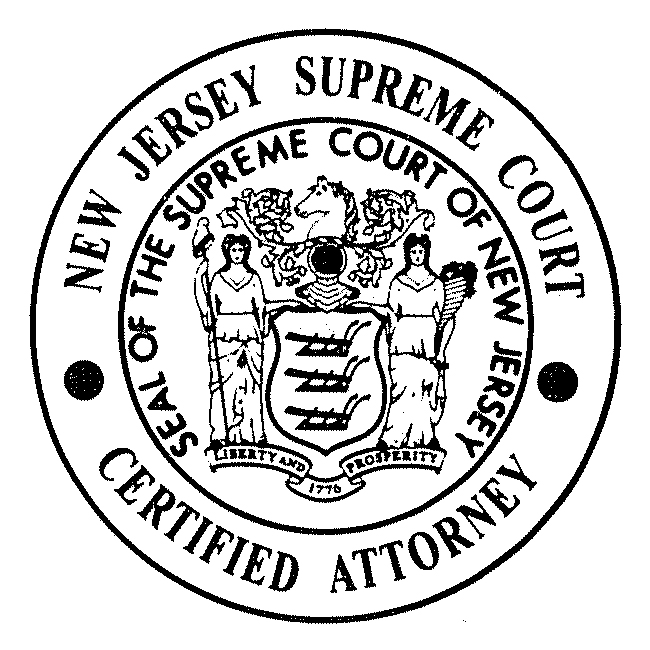What to expect from personal injury mediation in new jersey

With personal injury cases on the rise, many individuals are seeking alternative dispute resolution methods in place of traditional litigation. Mediation, a preferred choice in New Jersey, is becoming increasingly popular. But what can one expect from this process? The attorneys at Team Law are here to guide you every step of the way.
What is Mediation?
Mediation is a form of alternative dispute resolution where a neutral third party, known as the mediator, facilitates a conversation between the parties involved in a dispute. This process is voluntary and aims to help these parties reach a mutually acceptable agreement without resorting to court litigation.
Unlike a judge in a courtroom setting, a mediator doesn’t impose a decision. Instead, they assist both sides in understanding each other’s perspectives and crafting a settlement that addresses their concerns.
The Mediation Process
Mediation might seem intimidating for those unfamiliar with it, but understanding the process can demystify its workings. Here’s what typically happens:
1. Choosing Mediation
Before anything else, both parties (usually the injured party and the at-fault party or their insurance company) must agree to mediate. Mediation is a voluntary process, meaning both sides need to be willing participants.
2. Selecting a Mediator
Once both parties agree on mediation, they must choose a mediator. This individual is a neutral third party trained to facilitate negotiations between disputing parties. In New Jersey, many mediators are attorneys with expertise in personal injury law, but they can also be professionals trained specifically in mediation techniques.
3. Preliminary Preparations
- Information Exchange: Prior to the mediation, both parties will exchange relevant information. This might include medical records, bills, witness statements, photographs, and other pertinent documents.
- Initial Meeting: Sometimes, the mediator might meet with each party separately before the joint session. This allows each side to express their viewpoint, concerns, and objectives without the pressure of the opposing party being present.
4. The Mediation Session
- Opening Statements: The session usually begins with the mediator explaining the process and ground rules. Following this, each party presents their perspective on the dispute. This provides a foundation for the discussions to come.
- Facilitated Negotiation: The mediator will facilitate discussions, helping both sides communicate their needs and concerns. They might ask probing questions, aiming to clarify issues and help parties understand each other’s viewpoints.
- Private Caucuses: During the mediation, the mediator may hold private sessions (or caucuses) with each side. This allows parties to discuss matters privately with the mediator, who can then, with permission, relay relevant information to the other side.
5. Reaching an Agreement (or Not)
- Mutual Agreement: If both parties reach a consensus, the mediator will typically help draft a written agreement outlining the terms. This agreement, once signed, can be legally binding.
- No Resolution: If parties can’t find common ground, the mediator will discuss potential next steps. This might mean trying another session, seeking another form of alternative dispute resolution, or ultimately moving toward litigation.
6. Post-Mediation
- Finalizing Details: If an agreement is reached, there might be further steps like finalizing settlement details, releasing claims, or other administrative tasks.
- Continuing to Litigation: If no agreement was achieved, the parties might proceed to court for a traditional litigation process.
Benefits and Limitations
More New Jersey residents are opting for mediation as an alternative to court litigation. Mediation brings its own set of advantages and disadvantages, and understanding these can help parties make informed decisions. Here’s a closer look at the benefits and limitations of personal injury mediation in New Jersey.
Benefits of Personal Injury Mediation
Cost-Efficiency
- Mediation typically incurs fewer expenses than traditional court proceedings. Without the need for extended legal discovery, multiple court appearances, and other litigation processes, costs can be significantly reduced.
Faster Resolutions
- Legal battles in court can stretch over months or even years. Mediation, on the other hand, can often be scheduled more quickly and may lead to a resolution in a matter of days or weeks.
Confidentiality
- Unlike court trials, which are public and could expose sensitive details of the incident or the parties involved, mediation sessions remain confidential. This ensures that the details discussed and any personal information are kept private.
Control and Flexibility
- Parties have a greater say in the outcome of mediation. Instead of a judge or jury deciding their fate, they have the opportunity to negotiate terms that suit both sides. Additionally, mediation allows for more flexible scheduling compared to court dates.
Preservation of Relationships
- Litigation can strain relationships, creating a distinct ‘winner’ and ‘loser.’ Mediation’s collaborative approach can help maintain or even rebuild relationships, as it emphasizes understanding and compromise.
Customized Solutions
- Every personal injury case is unique. Mediation allows for tailored solutions that might not be possible within the rigid structure of the court system.
Limitations of Personal Injury Mediation
No Guaranteed Outcome
- While court litigation promises a definitive (though perhaps not favorable) outcome, mediation offers no such guarantee. There’s always the possibility that parties might not reach an agreement.
Lack of Binding Power
- Unless the mediation concludes with a signed settlement agreement, the decisions made are not legally enforceable. This contrasts with court judgments, which are legally binding.
Potential for Imbalance
- If one party is more dominant or has a more assertive legal representation, there’s a risk that the other party might feel pressured into agreements that don’t genuinely serve their interests.
Dependent on Cooperation
- For mediation to be successful, both parties need to enter the process with a genuine willingness to cooperate and compromise. If one party is intransigent, the mediation can quickly become unproductive.
Lack of Legal Precedent
- Court rulings often set legal precedents that can influence future cases. Mediation, being a private process, doesn’t contribute to these legal landmarks.
In summary, while personal injury mediation in New Jersey offers numerous advantages like cost-efficiency, speed, and flexibility, it’s essential to be aware of its limitations. Parties should weigh these benefits against the potential drawbacks to decide if mediation is the right choice for their unique situation.
Contact an Experienced Personal Injury Mediation Lawyer at Team Law for a Free Consultation About Your Case Today
Mediation offers a fresh perspective on dispute resolution, emphasizing collaboration and mutual understanding. While it might not be the answer for every personal injury case in New Jersey, its advantages make it a compelling option for many.
If you’re considering mediation for your personal injury dispute or want to explore all available options, the professionals at Team Law are here to assist.
Take the first step towards resolution. Schedule a consultation with Team Law today, and let us guide you through your personal injury mediation journey in New Jersey.
 CALL NOW
CALL NOW






